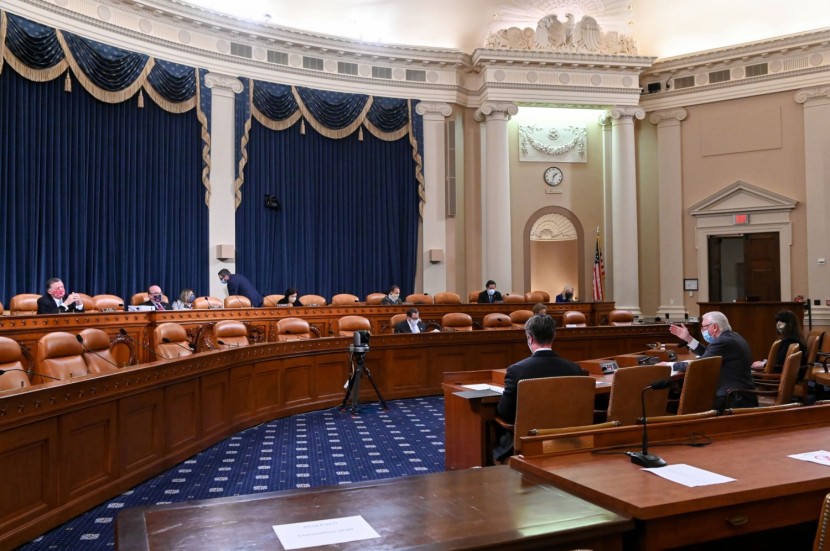
With job losses brought by the new coronavirus pandemic reaching more than 36 million in two months, the economy is in uncharted territory. Businesses and industries across the country are shuttered. On Friday, the House of Representatives passed the Heroes Act, Democrats' $3 trillion proposals, as an attempt by the government to curb the damage.
According to Forbes, the bill serves as a significant marker for the key priorities of Democrats as lawmakers weigh how to cope with the economic fallout caused by the new coronavirus pandemic.
The legislation includes more than $900 billion in federal funding for both cities and states, as well as another round of stimulus checks and prolonging the expanded unemployment insurance, passed the House 208-199 predominantly on party lines.
About $3 trillion has already been passed out by the congress in a couple of months as part of the new coronavirus relief effort- and the latest package of the House weighs in at over $3 trillion itself.
While far from a final bipartisan bill negotiated with the Senate, it's been recognized that there's no prompt end in sight for the new coronavirus or the chaos it's wreaking on the country.
The primary focus of the House bill is getting money to both state and local governments, many of which are looking at weighty budget shortfalls due to the new coronavirus. The bill includes $500 billion for states, $375 billion for local governments, $20 billion for tribal communities, and another $20 billion for territories like Guam, Puerto Rico, and US Virgin Islands.
The bill also allocates $755 million as coronavirus aid to Washington, DC. This is far greater than the first CARES ACT, which established a $150 billion relief fund for state and local governments.
Read also: Law Firm Hackers Threaten to Reveal Donald Trump's 'Dirty Laundry', Demanding $42 Million
There is a concurrence building among Democrats that the one-time $1,200 stimulus checks to Americans were not sufficient to meet the scale of the crisis. Another round of $1,200 is being proposed by Democrats, but with some changes. $1,200 for single filers and $2,400 for joint filers, but filers would be eligible for $1,200 per dependent.
With 264,000 tests a day, the US still lags behind other countries in per capita testing and officials from the White House are expecting to double the tests per day. Speeding up testing and contact tracing will take additional federal funding and Nancy Pelosi, Speaker of the House, said this is an important priority for Democrats in their bill.
The House bill would prolong expanded benefits through January 31, 2021, and to ensure that some individuals get benefits through March 2021, it would also put in a soft cutoff. The bill allocates $925 million to states to assist with processing claims since many states need additional money to cover their portion of unemployment benefits.
$10 billion additional grant allocated for small businesses
Earlier this year, provisions in the Families First Coronavirus Response Act have been approved by lawmakers enabling families and individuals to receive maximum monthly SNAP benefits for which they qualify. However, lawmakers have not expanded the maximum amount, which has not seen any increase in the aid they are receiving. The latest proposal of the Democrats' bill includes $10 billion to fill the increased demand for SNAP.
With the presidential election just six months away, many states are figuring out how to hold the elections without exposing the voters to the new coronavirus. The bill allocates $3.6 billion to expand vote-by-mail access and prolonging the period for early voting.
To fund the US Postal Service, the bill contains $25 billion. The new coronavirus pandemic has complicated long-standing problems at the USPS, which is burdened with debt it part because of the modern American communication ways.
Moreover, the bill funds roughly nine months of full premium subsidies for the existing COBRA health insurance program, which lets furloughed or laid-off employees to stay on their health insurance plans. Sen. Bernie Sanders and some Democrats have criticized this provision of the House bill as giving money to insurance companies and have recommended increasing the funding to expand Medicare and Medicaid to more people.
The bill includes SALT tax deductions. SALT is one that will reinstate the state and local tax deduction among some new tax provisions in the House bill. In 2017, the GOP tax bill which has been passed changed that deduction, capping the amount of state and local tax deductions someone could claim on their tax returns at $10,000. It impacted higher-income filers in states with higher taxes, like New Jersey, New York, and California.
On Friday, Democrats were able to gather votes needed to approve the legislation though 14 members of the caucus voted against it.
Related article: U.S President Donald Trump Introduced 3-Phase Plan to Reopen Economy
© 2026 HNGN, All rights reserved. Do not reproduce without permission.








